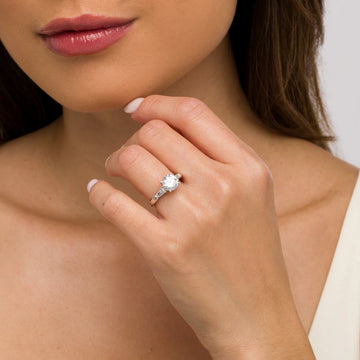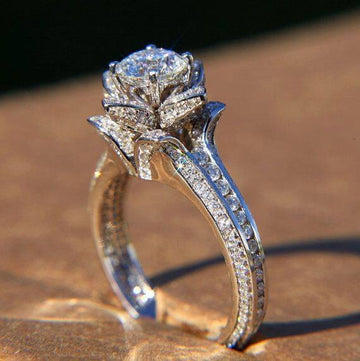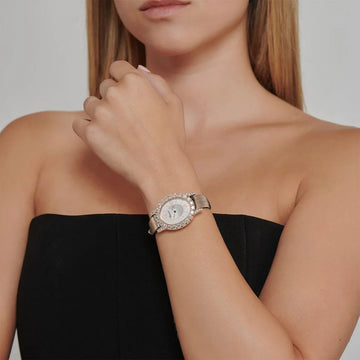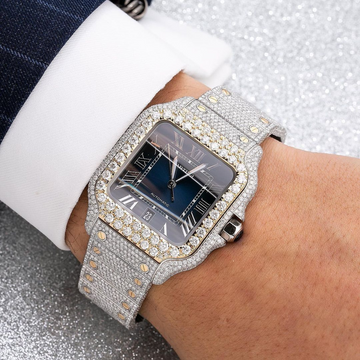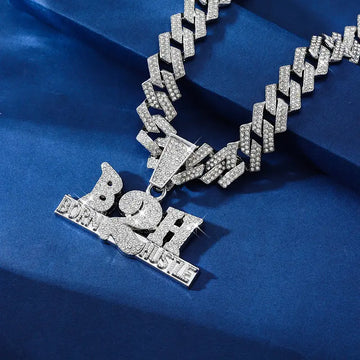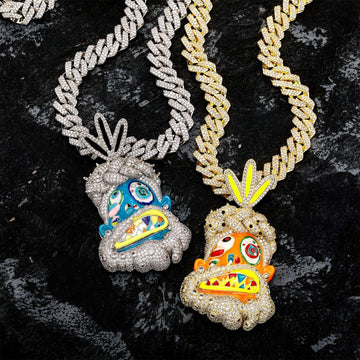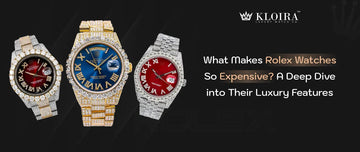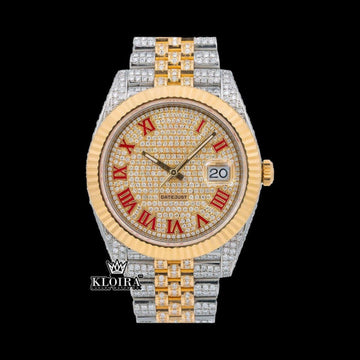Look, I get it. You've been saving up for months, maybe even years. You finally have enough money to buy something nice for yourself, and you're looking at Rolex watches. But then you see the price and you're like "wait, seriously?" Now you're wondering if you're just paying for a fancy logo or if there's actually something worth that money.
Why are Rolex watches so expensive, and more importantly - are they even worth it? Because let's be real, nobody wants to drop that kind of cash and feel like they got played. You want to know you're getting something real, something quality.
And trust me, I had the exact same questions. But don't worry, I looked into all of this stuff. Just keep reading and I'll explain everything about Rolex watches - why they cost so much, what makes them different, if they're actually worth it, and some things that kind of blew my mind.
By the end, you'll understand what you're really paying for. And even if you never buy one, at least you'll sound smart when someone asks about it.
The History Part (Bear With Me Here)
Look, Rolex has been around forever. Like, since 1905. That's over a hundred years! Two guys named Hans Wilsdorf and Alfred Davis started it in London. Back in 1926, they made the first waterproof watch ever. Just think about that for a second - before that, if your watch got wet, it was basically ruined.
But here's the thing. When you wear a Rolex today, people notice. It's like a status symbol or whatever. Famous personalities like Presidents, Movie stars and Divers wear them. It basically says "hey, I'm doing pretty well for myself."
I'm not saying that's the only reason to buy one, but let's be real - the brand name definitely matters. When someone sees that little crown logo on your wrist, they know what's up.
Quick Note: The brand recognition alone adds to the value. But stick with me - there's actual substance behind the price tag too.
Rolex Watch Materials (Like, REALLY Good)
So this is where it gets interesting. Rolex doesn't just use regular materials. They use the BEST materials. And I mean the best.
The Steel Situation
The steel they use? It's not normal steel. It's called Oystersteel, and it's way tougher than regular stainless steel. Most luxury watches use something called 316L steel, which is fine. But Rolex? They use 904L steel.
This is the same kind of steel that's used in airplanes and chemical plants. I didn't even know that was a thing until I looked into this. It's harder, more resistant to rust, and basically lasts forever. You can scratch regular steel pretty easily, but this stuff? Good luck trying.
If you want to learn more about the technical specs of Oystersteel, check out the official Rolex website - they explain it way better than I can.
The Gold and Platinum Thing
Oh, and the gold? They have their own gold foundry. Like, they actually make their own gold. Who does that?? Most watch companies just buy gold from suppliers, but Rolex decided "nope, we're gonna do this ourselves."
They use 18K gold, which means it's really pure. And they make it in-house so they can control exactly how it looks and feels. That's kind of insane when you think about it.
The same goes for platinum. These aren't cheap metals, and Rolex uses them in a lot of their higher-end models.
For more details on how Rolex makes their gold, you can read about their foundry process on watch enthusiast sites like Hodinkee or WatchTime.
The Crystal Clear Part
The glass part (they call it crystal, which sounds fancier) is made from sapphire. Not the actual gemstone, but synthetic sapphire that's super hard to scratch. I've dropped watches before and the glass just shatters into a million pieces. With a Rolex, that probably won't happen.
Tip: If you're thinking about buying a luxury watch, always check what kind of crystal it uses. Sapphire is the gold standard.
Rolex Makes Everything Themselves
Here's something I found really interesting. Most watch companies buy parts from other companies, right? They'll get the movement from one place, the case from another place, assemble it all together and call it a day.
Not Rolex. They make EVERYTHING themselves. Every tiny piece, every gear, every screw - all made in Rolex factories by Rolex people.
The Parachrom Thing
They have this thing called a Parachrom hairspring. Don't ask me to explain what a hairspring does exactly (something about regulating the watch's accuracy), but apparently this Parachrom version is really important.
Basically it makes the watch more accurate and less affected by magnets and temperature changes. They invented it in 2000, and apparently it was a huge deal in the watch world. It's one of those things where regular people don't really notice, but watch nerds go crazy for it.
When you control everything yourself, you can make sure it's all perfect. But that takes serious time and money. We're talking years of training for the people who make these watches. Some of them spend their entire careers just working on one specific part.
Note: In-house manufacturing is expensive. That's part of why Rolex costs more than brands that outsource their parts.
You Can't Just Go Buy One (Seriously)
This part is kind of crazy. Rolex only makes about a million watches per year. That might sound like a lot, but it's really not when you think about how many people in the world want them.
Some models? You have to wait MONTHS to buy one. Sometimes even years! I saw somewhere that people put their names on waiting lists just to have a chance to buy a Submariner at retail price.
The Waiting List Problem
Here's how it works. You walk into an authorized Rolex dealer and say "hey, I want to buy a Submariner." And they're like "cool, we don't have any. But we can put you on a list." Then you wait. And wait. And wait some more.
Meanwhile, if you really want one NOW, you can buy from the gray market (people who resell Rolexes), but you'll pay way more than the retail price. Sometimes double or even triple.
And because everyone wants them but there aren't that many available, the prices stay high. Some people even buy them as investments - they wear them for a few years and then sell them later for MORE money than they paid. It's wild.
Tip: If you're serious about buying a Rolex, build a relationship with an authorized dealer. Buy some other watches first, show you're a real customer, and your chances of getting the model you want go way up.
The Rolex Designs Never Get Old
You know how some things look cool for a few years and then they look outdated? Like, remember when those chunky digital watches were popular? Yeah, those look pretty dated now.
That doesn't really happen with Rolex.
The Submariner has looked basically the same since the 1950s, and it still looks amazing. Same with Datejust. Sure, they've made small tweaks and improvements over the years, but the overall design? Timeless.
These designs just... work. They looked good back then, and they look good now. You can wear one with a suit or with jeans and a t-shirt, and it still looks right.
I guess that's part of why people see them as investments. You're not gonna look at your Rolex in 10 years and think "wow, that looks so 2020s." It'll still look classy. Your kids could wear it and it would still be in style.
Note: This is actually smart business. Why change something that already works perfectly? Rolex figured out winning designs decades ago and just stuck with them.
They're Really Good at Marketing (Like, Really Good)
Okay, let's be honest here. Rolex knows how to sell their brand. They sponsor big events like Wimbledon and Formula 1. They're the official timekeeper for yachting competitions. These aren't cheap sponsorships, but they put Rolex in front of the right people.
And the celebrities? Oh man. James Bond wore a Rolex in some of the older movies. Tiger Woods wears one. Roger Federer. Loads of successful, famous people wear Rolexes. When you see that enough times, it creates this association in your brain: Rolex = success.
So yeah, part of the price is definitely the brand image and marketing. But I don't think that's necessarily a bad thing. They've earned that reputation over like 100+ years of making quality stuff. It's not like they're all hype with nothing to back it up.
So... Are They Actually Worth It?
This is the big question, right? After all that, are Rolex watches actually worth the money?
Here's my honest take: If you've got the money and you want a watch that'll last forever, that's made with incredible quality, and that might even increase in value - then yeah, probably worth it.
The Investment Angle
Some Rolex watches have sold for INSANE amounts of money. There's this one Daytona that belonged to Paul Newman (the actor) that sold for almost 18 million dollars. MILLION. With an M. That's obviously an extreme example - most Rolexes won't sell for anywhere near that. But still.
Even regular Rolex watches often hold their value or go up in price over time. Try doing that with a regular watch. Most watches lose value the second you walk out of the store, kind of like cars. But Rolexes? Different story.
So it's not just money down the drain. You're buying something that could be worth more later. Or at the very least, you could probably sell it for close to what you paid.
The "Just Telling Time" Argument
But here's the thing. If you're just looking for something to tell time? There are way cheaper options that work just fine. Heck, there are $20 Casio watches that are probably more accurate than a Rolex (they use quartz movements which are super precise).
So you're not really paying for functionality. You're paying for craftsmanship, heritage, materials, and yeah - the prestige of owning a Rolex.
Tip: Don't buy a Rolex because you think you SHOULD. Buy one because you genuinely want it and appreciate what it represents.
Quick Answers to Questions You Might Have
Can I negotiate the price when buying a Rolex?
Probably not, to be honest. The authorized dealers have set prices and they usually stick to them. If you want to save some money, maybe look at used ones instead. But even those aren't really "cheap" because Rolex watches don't lose value like other stuff does.
How long does a Rolex actually last?
A really long time. Like, people wear them for 30, 40, 50 years and they still work. You do have to get it serviced every few years (kinda like taking your car for maintenance), but if you take care of it, it'll probably outlast you. Some people even pass them down to their kids.
How do I know if a Rolex is fake?
The cheap fakes are pretty easy to spot - they just look and feel wrong. But the expensive fakes? Those are tricky, even for people who know watches. Best advice? Only buy from official Rolex stores or really trusted used watch dealers. Don't buy one off some random guy online, no matter how good the deal sounds.
Do I have to wind my Rolex every day?
Nah, not if you wear it regularly. It winds itself when you move your arm around during the day (pretty cool, right?). But if you take it off for a few days, it'll stop running. Then you either wind it by hand or just put it on and move around a bit to get it started again.
What's the cheapest Rolex I can get?
The Oyster Perpetual is usually the cheapest new one, and that's still around $5,000 or $6,000. Yeah, I know, that's not exactly cheap. You could look at used ones to save money, but don't expect any crazy bargains. These watches just don't drop in price much, even when they're not brand new.
My Final Thoughts on Rolex Watches
So after looking into all this and learning way more about watches than I ever thought I would, I get it now. The price isn't random or just about the logo.
You're paying for:
- Materials that are legitimately high quality (that 904L steel isn't cheap)
- Craftsmanship from people who really know what they're doing (some trained for years)
- A watch that'll probably outlast you (and maybe your kids too)
- Something that's rare and hard to get (artificial scarcity, but still)
- The prestige and history of owning a Rolex
- An item that might actually gain value over time
Is it expensive? Yes, obviously. Like, really expensive. Is it JUST the brand name? No, there's actual substance behind it.
Would I buy one if I had the money? Honestly... yeah, probably. But I'd have to save up for a while first! And I'd do a ton of research on which model to get because they're all different.
So what do you think? Would you spend that kind of money on a watch? I'm honestly still on the fence about it, but I definitely understand the appeal now. Let me know your thoughts!









